Internal Auditor ISO 14001 Environment Management System
Original price was: ₹10,000.00.₹8,500.00Current price is: ₹8,500.00.
Being an internal auditor for ISO 14001, the Environmental Management System (EMS), is a crucial role that involves ensuring an organization’s environmental practices meet the standard’s requirements. Here’s a brief overview of the role and responsibilities:
### Role of an Internal Auditor for ISO 14001 EMS
1. **Understanding ISO 14001**: Familiarize yourself with the ISO 14001 standard to understand its requirements and criteria for an effective EMS.
2. **Audit Planning**: Plan and schedule internal audits to evaluate the EMS’s conformance and effectiveness against the ISO 14001 standard.
3. **Audit Execution**: Conduct on-site or remote audits by reviewing documentation, interviewing staff, and observing processes to assess compliance with ISO 14001 requirements.
4. **Identifying Non-conformities**: Identify and document any non-conformities or areas of improvement in the EMS during the audit.
5. **Reporting**: Prepare audit reports detailing findings, including identified non-conformities, observations, and recommendations for improvement.
6. **Follow-up**: Monitor and verify the implementation of corrective actions taken by the organization to address identified non-conformities.
7. **Continuous Improvement**: Promote a culture of continuous improvement by providing feedback and recommendations to enhance the effectiveness of the EMS.
### Key Skills and Qualities
1. **Technical Knowledge**: Understanding of environmental management principles, ISO 14001 requirements, and relevant environmental laws and regulations.
2. **Analytical Skills**: Ability to analyze processes, data, and information to identify compliance issues and areas for improvement.
3. **Communication Skills**: Effective communication skills to interact with staff at all levels, explain findings, and provide recommendations clearly and professionally.
4. **Attention to Detail**: Thoroughness in reviewing documentation and conducting audits to ensure accuracy and completeness.
5. **Ethical Integrity**: Conduct audits with impartiality, integrity, and professionalism, maintaining confidentiality of sensitive information.
### Training and Certification
Many organizations require internal auditors to undergo specific training or obtain certifications related to ISO 14001 EMS auditing. Training programs are available from various organizations and certification bodies that specialize in environmental management systems auditing.
### Conclusion
Being an internal auditor for ISO 14001 EMS requires a combination of technical knowledge, analytical skills, and effective communication to ensure the organization’s environmental practices align with the standard’s requirements. It’s a rewarding role that plays a vital part in promoting environmental responsibility and sustainability within the organization.

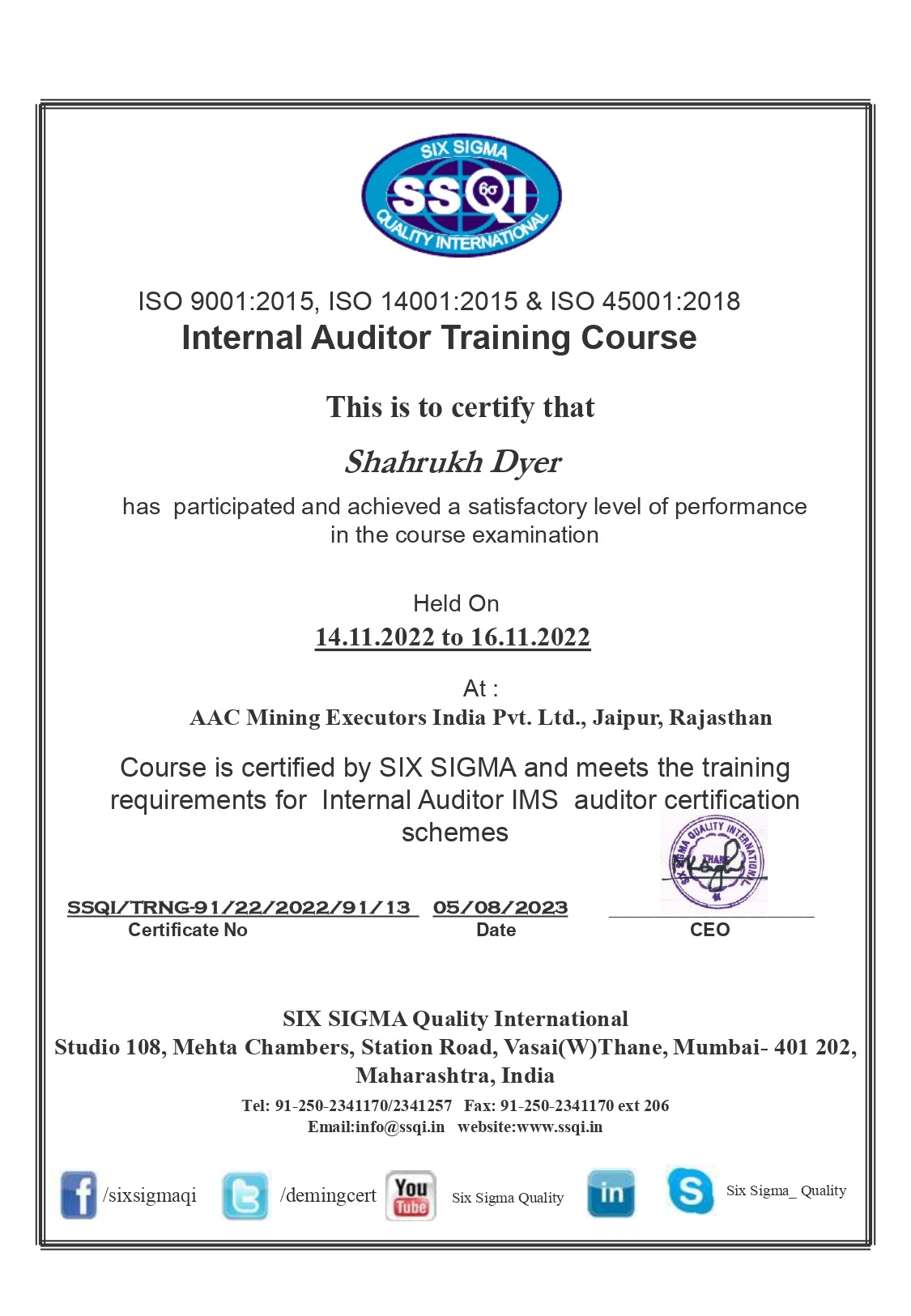
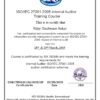

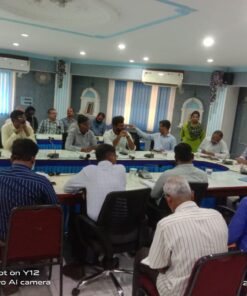
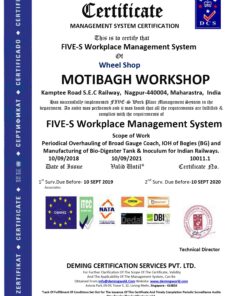
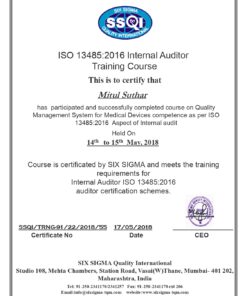



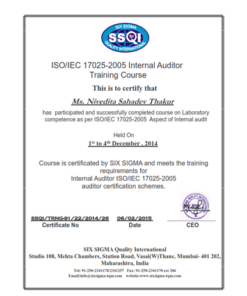
Reviews
There are no reviews yet.